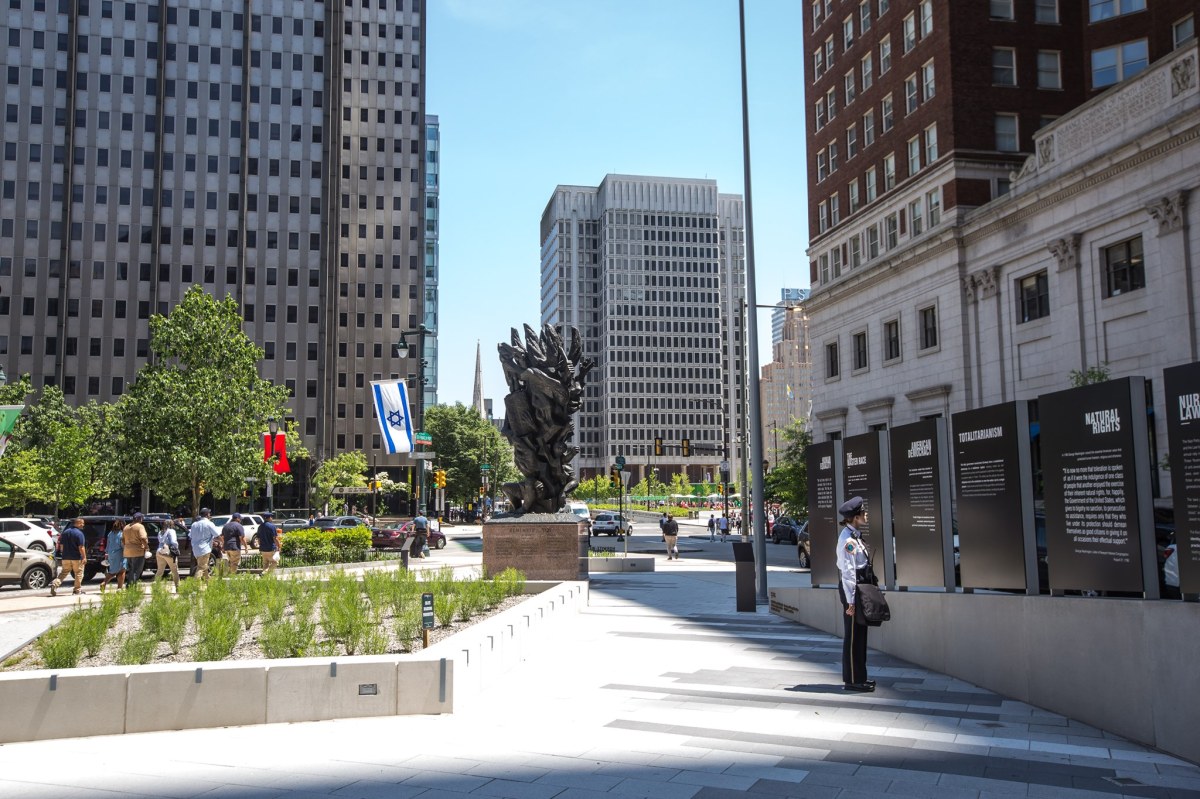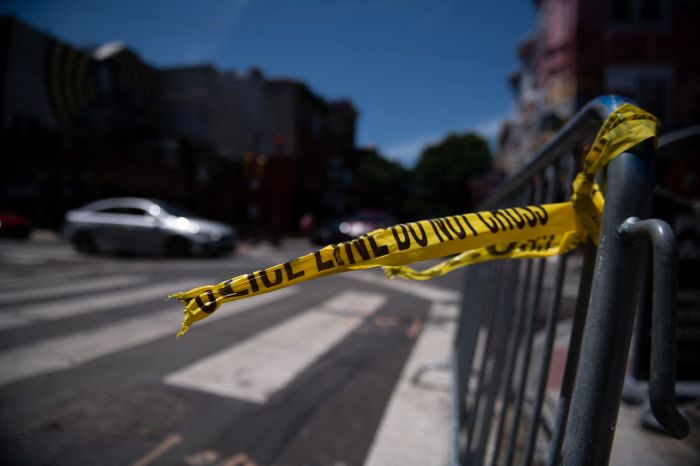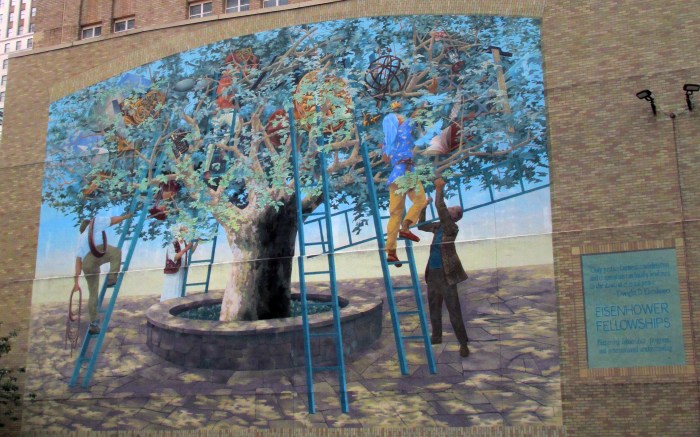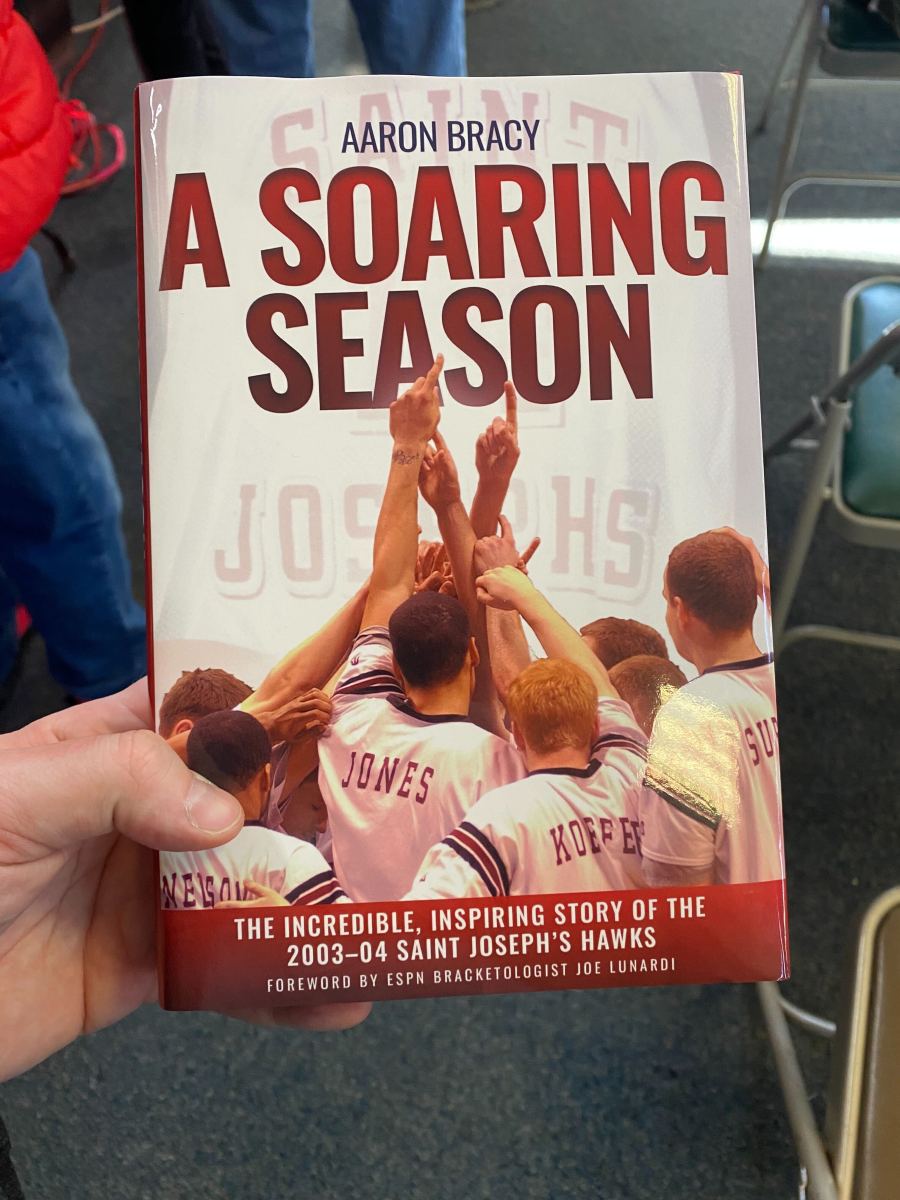On May 15, video surfaced of a group of young men attempting to tear down and burn the Israeli flag situated at the head of the Benjamin Franklin Parkway. Fortunately, they weren’t successful in reaching the flag, but their mission was clear: a public display of hatred in the face of an intensifying Israeli-Palestinian conflict.
To understand the full history of the conflict, aspects of which date back to Biblical times, is an extraordinarily daunting task for any historian, let alone the everyday media consumer. Needless to say, its roots are implanted deeply among residents of both the Middle East and United States. The complex nature of the conflict, however, does not excuse acts of malice that only serve to perpetuate a cycle of hatred.
Consider the history of the Israeli flag on the Parkway, not just as a symbol of Israel’s heritage, but for what it means to the City of Philadelphia and to Jewish residents of the city. In 1976, as part of a bicentennial celebration, the city put up nearly 100 flags, honoring countries that had significant representation in the local population. The flags were generally displayed in alphabetical order – with a few exceptions – creating a colorful landmark that showcased the immense diversity of our city.
One of the exceptions to the alphabetized ordering was the Israeli flag. At the intersection of the Benjamin Franklin Parkway and Arch Street stood an important symbol for the Jewish community: Nathan Rapaport’s sculpture titled the Monument to Six Million Jewish Martyrs, the United States’ first public Holocaust memorial. For the local Holocaust survivor community, the flag became a signal of triumph. Founded just a few years after the Holocaust, when millions of Jews were murdered as a result of Hitler’s unbridled racism and a global unwillingness to give them refuge, the State of Israel promised to provide a haven for persecuted Jews. The purposeful placement of the flag near the Monument juxtaposed the sculpture’s vivid depiction of despair and loss with what was designed to be a global solution to antisemitism.
As any Jewish person will tell you, Israel is far from a perfect country. Criticism and open conversation about Israel’s policies is, of course, valid. But burning its flag, especially in such close proximity to the Holocaust Memorial, is understandably seen as an attack on Jews everywhere.
The problem of flag burning also goes much deeper, because while conversations can have nuance, violence simply can’t. On countless occasions, we’ve seen blatant antisemitism masquerading as anti-Zionism, and protests against Israel being used as an excuse for violent attacks on American and European Jews.
The days surrounding the attempted vandalism in Philadelphia showed this all too clearly, as ostensibly anti-Israel protests around the world devolved into pure antisemitism. The streets of London were sullied by the cry of “f*** the Jews, rape their daughters,” while attacks against Jews were carried out in New York, Los Angeles and other U.S. cities.
It is quite a leap from protesting a military conflict in the Middle East to physically assaulting American citizens, and that leap can only be explained by the stereotypical notion that all Jews can be blamed for the actions of Israel — a point of view as foolish and dangerous as any other racial prejudice.
In Philadelphia, the land surrounding the Monument on the Parkway now serves as the Horwitz-Wasserman Memorial Plaza, an outdoor ‘museum’ that features historical artifacts and educational materials honoring the countless victims of the Holocaust. The Plaza and its community events make connections between Holocaust history and bigotry in all of its forms with the goal of building tolerance among all communities. It has already welcomed thousands of visitors from all walks of life, serving as a resource for teachers, students and the general public to learn about the importance of tolerance and understanding.
There is little doubt that the attempt to destroy the Israeli flag located steps from a Holocaust memorial is an attack on the Jewish community. But, more broadly, it is a direct attack on the universal principles of tolerance and understanding. The act was akin to the overall diminishment of dialogue about ideological differences, exacerbated by a news and social media landscape that consistently stokes division among our fellow human beings.
Our organization often talks about education as the antidote for hatred, and we believe that mantra to be true in this case. We encourage members of our community to pursue deeper, richer understanding about the conflict overseas, both with a curiosity and an underlying belief that Israelis, Palestinians, and all people have the right to pursue peace, dignity, and mutual respect. We need to stop the cycle of hatred, and that process begins with education, not destruction.
Eszter Kutas is Executive Director of the Philadelphia Holocaust Remembrance Foundation.

























